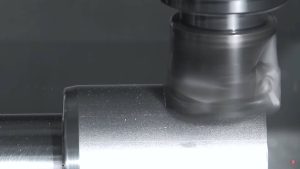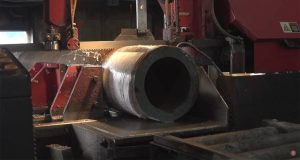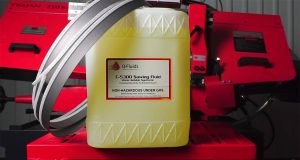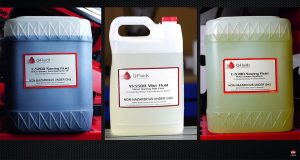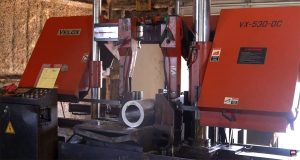Titanium is a versatile metal known for its exceptional strength, light weight, and corrosion resistance. Discovered in the late 18th century, titanium has become a valuable material in various industries due to its unique properties. It is as strong as steel but 45% lighter, and it naturally forms a protective oxide coating, which makes it highly resistant to rust and corrosion. This combination of strength, durability, and lightness makes titanium ideal for demanding applications where other materials would fail.
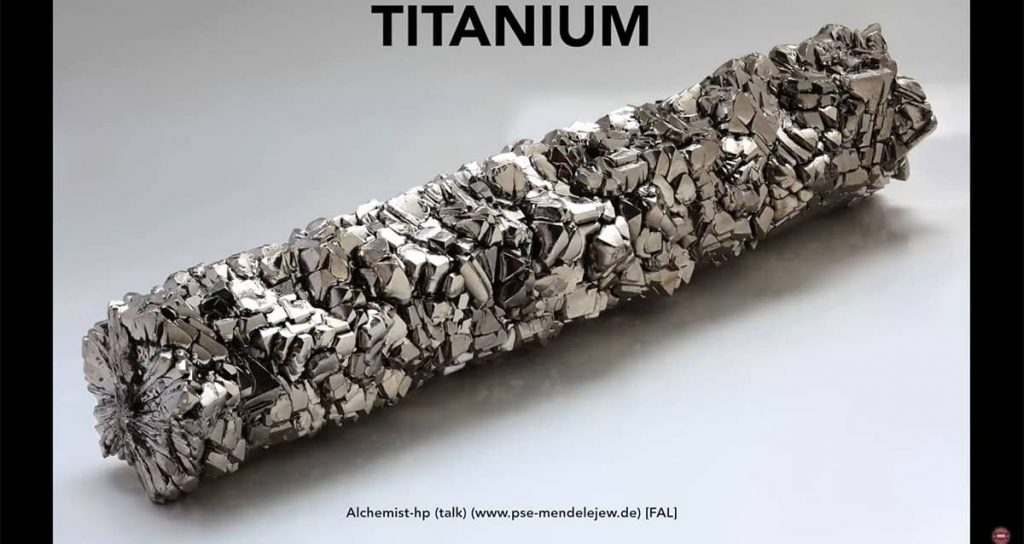
Key Benefits of Titanium:
- High Strength-to-Weight Ratio: Titanium is incredibly strong yet lightweight, making it an ideal material for applications where weight is a critical factor.
- Corrosion Resistance: The metal’s natural oxide layer protects it from corrosion, even in harsh environments such as seawater and acidic conditions.
- Biocompatibility: Titanium is non-toxic and is not rejected by the human body, making it perfect for medical implants and devices.
- Low Thermal Expansion: Titanium does not expand or contract significantly with temperature changes, maintaining stability under varying thermal conditions.
- Flexibility: Despite its strength, titanium can flex without breaking, providing durability in applications where materials must withstand stress.
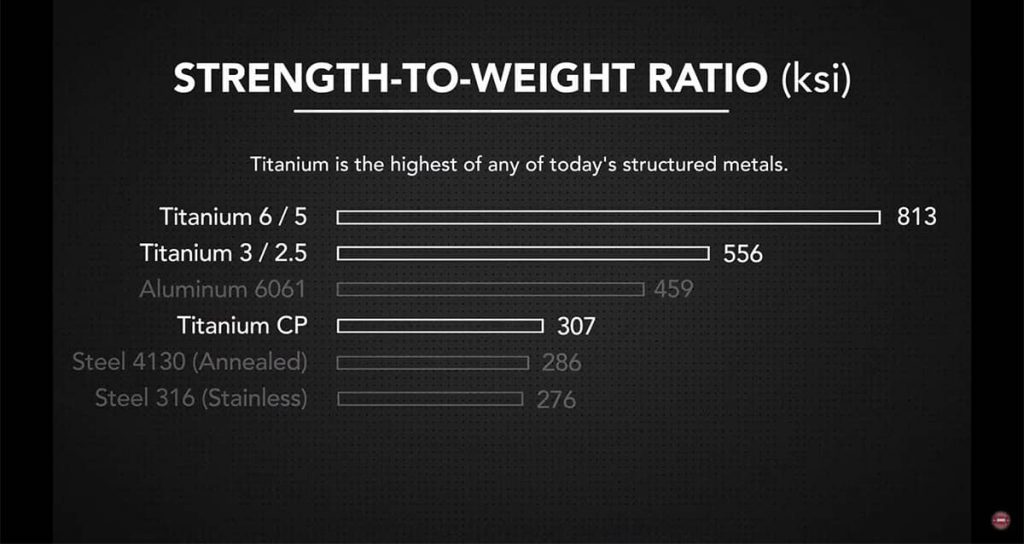
Applications of Titanium:
Titanium’s unique properties make it an essential material in many industries. In aerospace, it is used for aircraft frames and engine components due to its strength and lightness. The medical field relies on titanium for implants and surgical instruments because it does not react with the body. Additionally, in the automotive and sports industries, titanium is used in performance vehicles, bicycles, and other sports equipment to enhance durability without adding unnecessary weight.
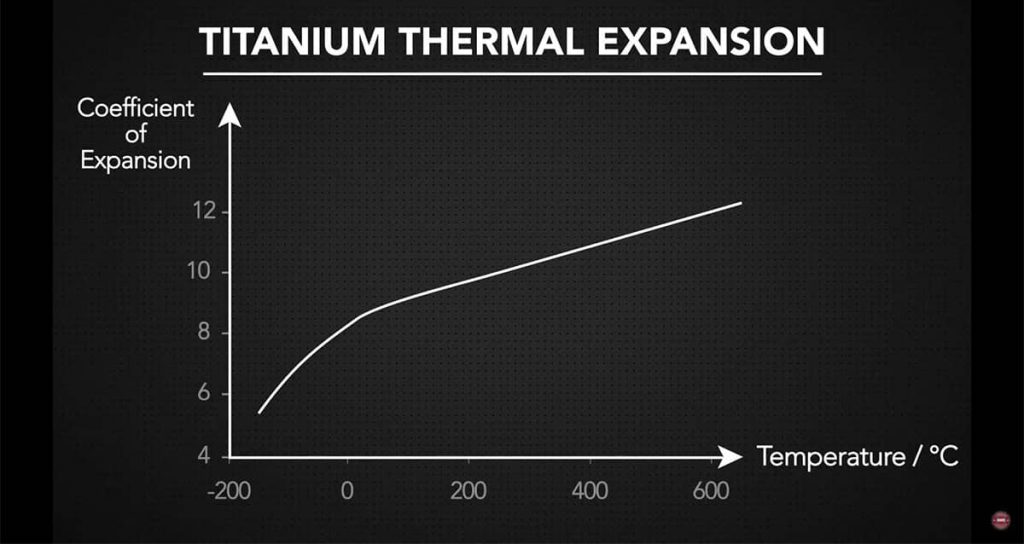
Why Titanium is a Preferred Choice:
Titanium is highly versatile due to its strength, lightness, and resistance to corrosion and extreme temperatures. It’s widely used in chemical processing, marine environments, and medical implants like hip replacements and dental implants. In aerospace, titanium’s high strength-to-weight ratio and heat resistance make it ideal for aircraft and spacecraft, contributing to efficiency and durability. Its ability to excel in diverse conditions makes titanium a top choice in many industries.

Titanium Specifications:
| Property | Value |
|---|---|
| Density | 4.506 g/cm³ |
| Melting Point | 1,668°C (3,034°F) |
| Thermal Conductivity | 21.9 W/m·K |
| Tensile Strength | 434 MPa (Grade 2) |
| Modulus of Elasticity | 116 GPa |
| Corrosion Resistance | Excellent, due to oxide layer |
| Typical Uses | Aerospace, Medical, Industrial |
Discover More with SawbladeUniversity
For a deeper understanding of titanium and its incredible properties, don’t miss out on the video “2080 – 09 – What is Titanium?” on SawbladeUniversity’s YouTube channel. This resource provides a comprehensive look at why titanium stands out in various applications.
👉 Take the Quiz to Test Your Knowledge on Titanium: Take the Quiz
Watch “2080 – 09 – What is Titanium?” on SawbladeUniversity
Curious to learn more about titanium and its unique properties? Head over to SawbladeUniversity on YouTube and watch the video “2080 – 09 – What is Titanium?” This informative video delves into the characteristics, applications, and advantages of titanium, providing valuable insights for professionals and enthusiasts alike. Don’t miss out on this opportunity to expand your knowledge about one of the most versatile metals in modern industry!
Explore the Melting Point of Nickel
Curious about the properties of nickel and how its melting point affects its use in various applications? Dive into our article, “Understanding the Melting Point of Nickel,” to learn all about this versatile metal. Discover how nickel’s melting point influences its role in manufacturing, from electronics to aerospace. This article provides valuable insights for anyone interested in metal properties and their practical uses. Check it out now to expand your knowledge on this essential element!
Titanium’s unique combination of strength, lightness, and corrosion resistance makes it an unparalleled choice for a variety of applications. Whether you are looking to improve performance in aerospace, enhance medical devices, or explore new possibilities in sports equipment, titanium provides unmatched benefits. Visit SawbladeUniversity.com to learn more about titanium and discover how this remarkable metal can enhance your projects.


